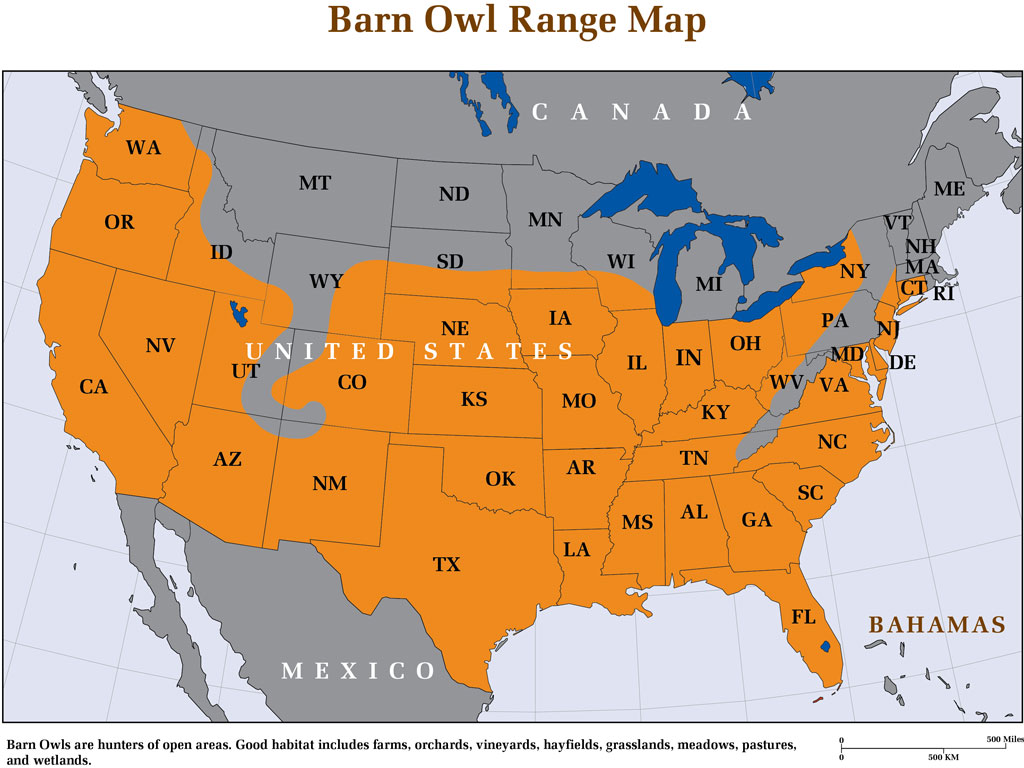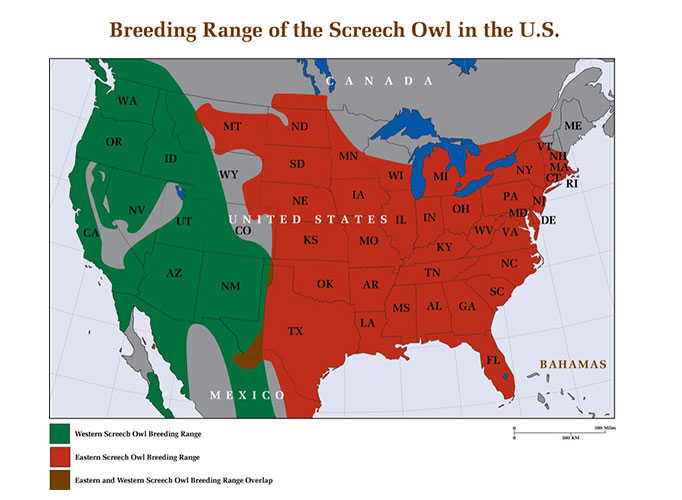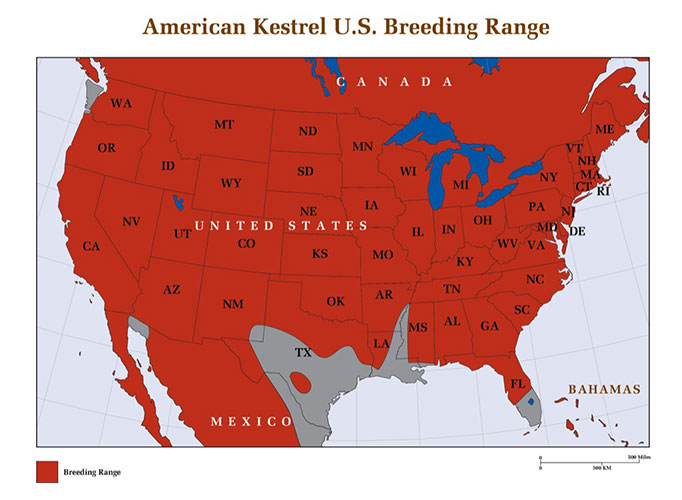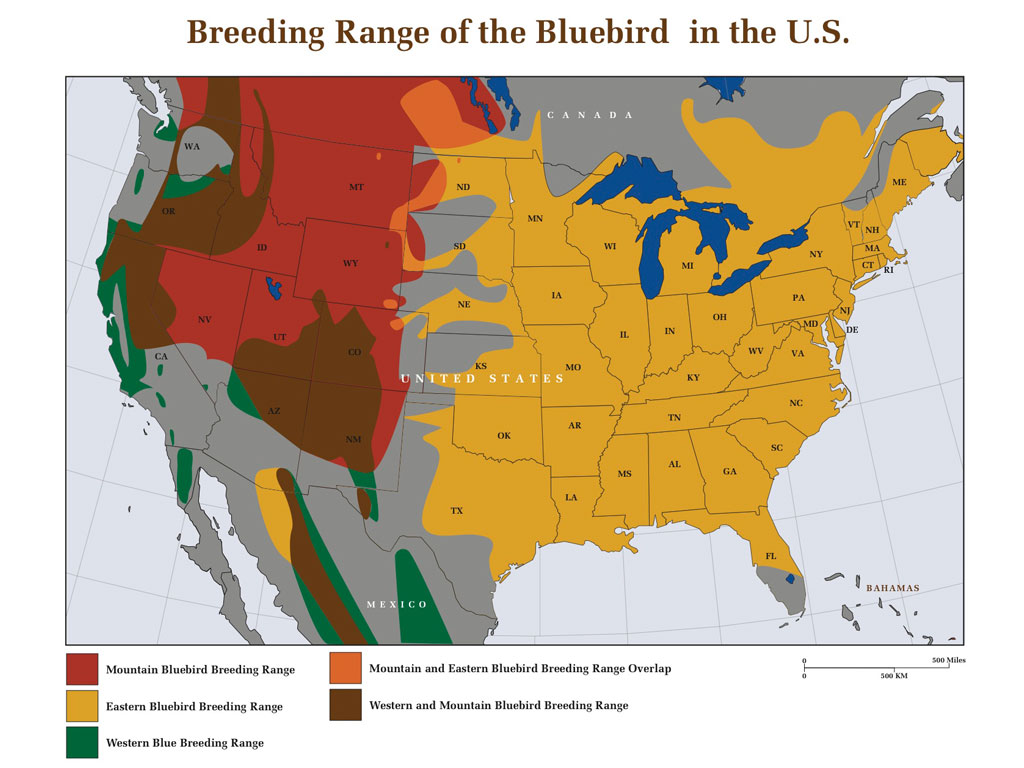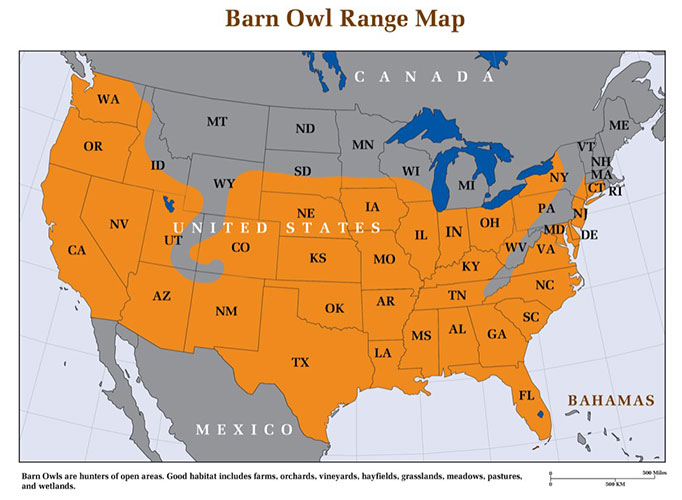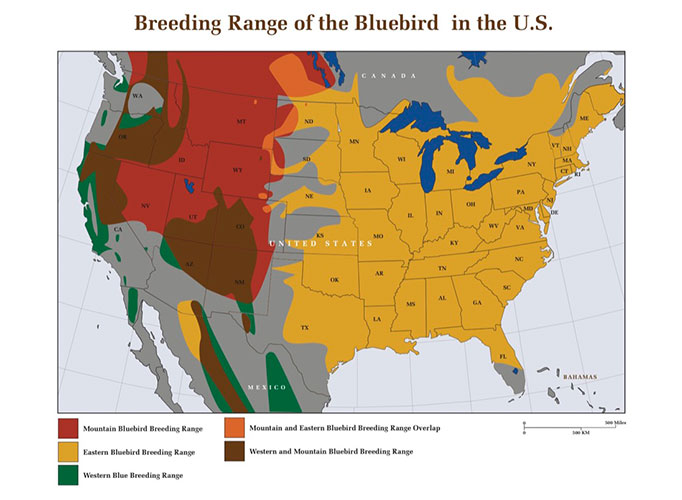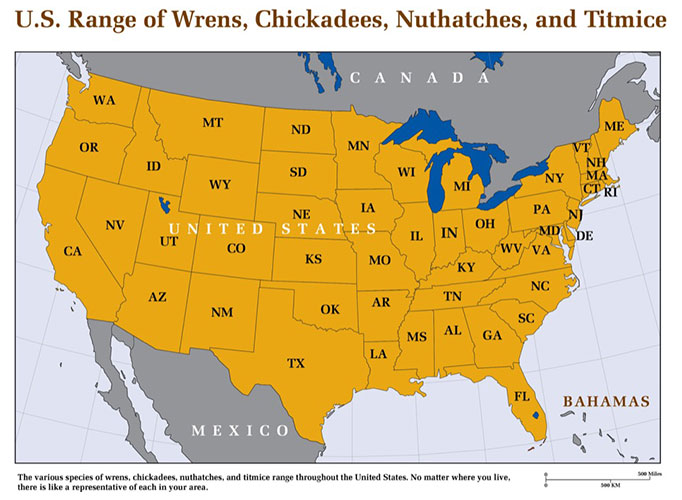Free Shipping to the Contiguous United States
Rhode Island Barn Owls
Barn Owls in Rhode Island
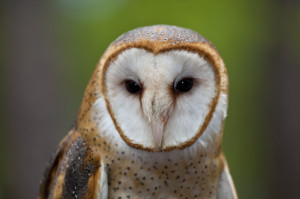
The first barn owl was recorded in Rhode Island in 1938. From then into the 1950’s it became fairly common throughout the coastal lowlands. Since then, in the face of intense development in those same areas, the barn owl has been nearly extirpated on the mainland where only widely scattered records are known. Almost all recent sightings have been within 5 miles of the coast. Two remaining populations exist on Aquidneck and Block Islands where farms still predominate and the owl is known to nest in abandoned buildings and dig its own burrows in sea cliffs.
Block Island and Wildlife Habitat Restoration
With only about 3500 acres of salt marsh and 65,000 acres of wetlands remaining, Rhode Island has lost approximately 35% of its wetlands. Despite ongoing losses of salt marsh, wetlands, and farmland, recent conservation efforts have restored salt marsh habitat on Block Island. Such conservation work is benefitting numerous bird species including the grasshopper sparrow, barn owl, northern harrier, and upland sandpiper. In 1998, the Partners program funded a saltmarsh restoration at Mosquito Beach, the largest producer of mosquitos on Block Island. Channels were dug to allow fish to swim farther into the saltmarsh, drastically reducing the mosquito production. Almost 13,000 acres have been targeted elsewhere as potential sites of freshwater wetlands restoration.
Rhode Island Agriculture
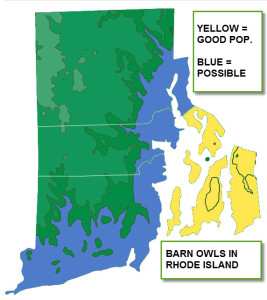
Blue = potential random breeding
About 60,000 acres of farmland are left in the state. Potatoes are the leading crop. Milk is second. However, Rhode Island is also home to numerous horse farms and, due to the small size of the state and the concentrated rural areas, the density of horses in RI may be one of the highest in the country. Because horses and cattle attract high numbers of rodents (house mice and Norwegian rats mainly), the potential for a win-win situation exists in such enterprises installing barn owl nest boxes. It could widen the distribution of barn owls in the state while helping livestock farmers lower pest damage.
Barn Owl Conservation in Rhode Island
The barn owl could benefit from nest box programs near wetlands and salt marshes, and in rural areas that support horse, dairy, and hay farms. To report barn owl sightings or an interest in erecting barn owl nest boxes, contact: State Land Conservation and Acquisition Program, 235 Promenade Street, Providence, Rhode Island 02908 (401) 222-2776 x 4307

